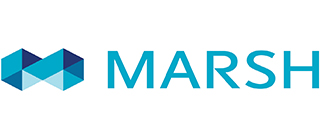Awareness of others creates safety in the boardroom
Directors need to navigate risk and identify opportunities, but if board members aren’t listening, will this be lost? Find out more.
A global survey on how directors responded to the COVID-19 crisis has found most worked harder, and smarter.

|
In the months after the COVID-19 crisis broke, board governance has become more intense and more frequent. In the early stages of the crisis, many boards met weekly, next moving to every other week as the crisis continued, and then moving to monthly meetings. Two- thirds of directors report that over the past year their time commitment increased by 50% or more; about one in five report that their time dedicated to board service doubled or tripled.
The findings come from the Global Network of Director Institutes (GNDI) 2020-2021 Survey Report, produced in association with Marsh & MacLennan. Between August and November 2020, nearly 2,000 directors across the globe participated in the survey, representing 17 director institutes spanning North and South America, Africa-Middle East, Asia- Pacific, Russia, Europe and the United Kingdom.
Around 120 New Zealand directors took part, comprising 6% of the total responses.
Much of this increased time was spent working with management to recalibrate strategy in response to short- and longer-term changes in the COVID-19 operating environment (56%) — the highest-ranked issue when directors were asked to rate their top three challenges in responding to the crisis.
Some of the other challenges highlighted were COVID-19 specific, such as ensuring the success of virtual meetings (39%) and responding to new regulations (39%). Other concerns, such as ensuring board decisions on many fast-moving issues (23%) and supporting management without being overwhelming (37%) align to more traditional governance responsibilities.
The vast majority of directors (89%) report that their boards have been able to effectively govern during the crisis. Directors serving on multiple boards are nearly unanimous (96%) in their belief that they have been able to meet their board commitments, despite spending significantly more time in the (now virtual) boardroom.
This effectiveness suggests some, at least self-perceived, agility in how boards and management teams learned to operate in the crisis.
Virtual board engagement is a powerful new tool for directors across the globe to wield in 2021, and most boards plan some type of virtual meeting experience going forward. Seventy-one percent of directors expect more than one in five of their full- board meetings to be virtual following the crisis. Seventy-eight percent of directors report that at least one in five committee meetings will be virtual.
For many, the next in-person board meeting remains some distance in the future.
As boards adapt to virtual meetings and virtual meetings become a regular part of the board’s activities, it is easy to imagine changing the board agenda — and potentially changing operating models — to take advantage of the unique benefits that virtual meetings may offer. This may mean meeting more often with management teams for shorter and more- frequent real-time updates, reserving in-person meetings for specific board activities, such as onboarding or tabletop exercises, and distributing full-board and committee meetings across more, but shorter, meetings.
Directors give high marks to themselves and to their management teams Although only 14% of boards had “pandemic risk” listed as a top risk before the crisis, 72% of directors were pleased with the performance of their crisis response plans and their own ability to provide oversight during the crisis. Many credit prior scenario planning with providing a good foundation for an effective response to the COVID-19 crisis. Clear majorities of directors believe that they were able to effectively govern during the crisis and that their organisations adapted well.
There will be an increased emphasis on risk in 2021 and beyond. Directors anticipate expanding their risk dashboards to incorporate new kinds of risks next year and plan to consult with more outside experts to gain a broader perspective on future risks. The crisis will likely have the most significant long- term impact on how boards engage their companies on strategy and risk and assess employee health and safety. However, just 26% of directors across the globe think that they will need to improve their crisis management plans in the new risk landscape ahead.
Virtual board meetings work, but they are second best. A minority of directors view virtual board meetings as just as effective as in-person meetings. The lack of nonverbal communication is the highest-ranked challenge of virtual meetings. However, even in this second-best environment, most directors believe that they have been able to perform their work effectively.
Virtual board meetings are here to stay. Based on their experiences over the last year, strong majorities of directors expect to see virtual board and committee meetings in the future. They also view virtual board engagement as a useful tool to enhance board effectiveness. Although many boards in Asia and Oceania have already met in person, most boards across the globe do not anticipate meeting in person until the first or second quarter of 2021.
Nearly 7 in 10 directors report spending more time on board work this year than last year; most report increasing their time commitment by 50%. Directors serving on more than one board were nearly unanimous (96%) in saying that they were able to manage their commitments across their multiple responsibilities. Just 8% reported that they had either left or desired to leave a board due to lack of time.
See the full report